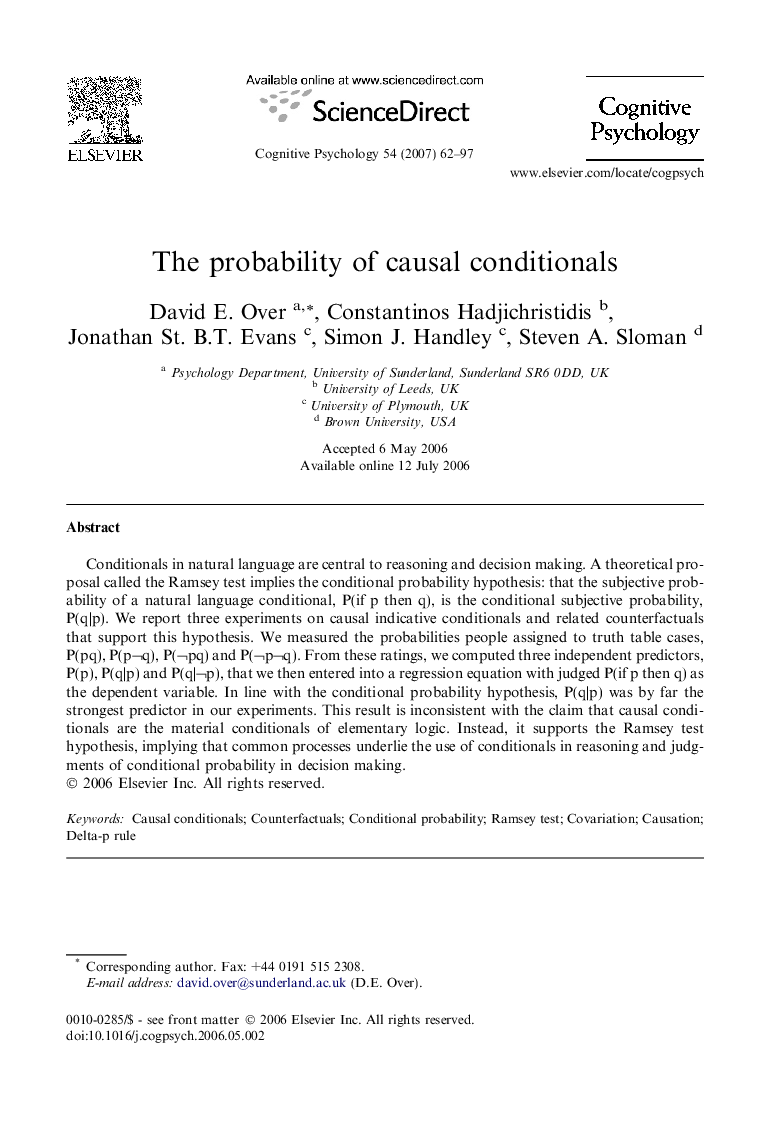| Article ID | Journal | Published Year | Pages | File Type |
|---|---|---|---|---|
| 917052 | Cognitive Psychology | 2007 | 36 Pages |
Conditionals in natural language are central to reasoning and decision making. A theoretical proposal called the Ramsey test implies the conditional probability hypothesis: that the subjective probability of a natural language conditional, P(if p then q), is the conditional subjective probability, P(q|p). We report three experiments on causal indicative conditionals and related counterfactuals that support this hypothesis. We measured the probabilities people assigned to truth table cases, P(pq), P(p¬q), P(¬pq) and P(¬p¬q). From these ratings, we computed three independent predictors, P(p), P(q|p) and P(q|¬p), that we then entered into a regression equation with judged P(if p then q) as the dependent variable. In line with the conditional probability hypothesis, P(q|p) was by far the strongest predictor in our experiments. This result is inconsistent with the claim that causal conditionals are the material conditionals of elementary logic. Instead, it supports the Ramsey test hypothesis, implying that common processes underlie the use of conditionals in reasoning and judgments of conditional probability in decision making.
